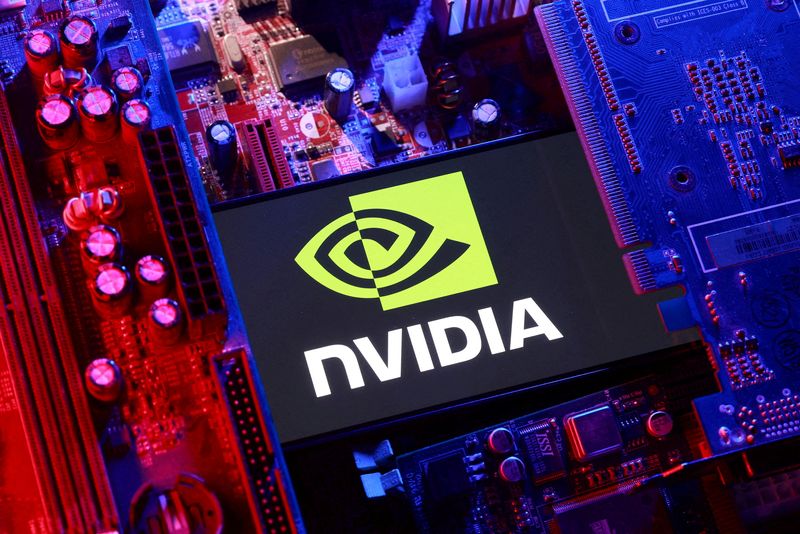Intel’s Nvidia deal expected to be a mixed blessing for Asian chipmakers
By Wen-Yee Lee and Hyunjoo Jin
TAIPEI/SEOUL (Reuters) – Nvidia‘s $5 billion investment in Intel is a double-edged sword for Asian chipmakers such as TSMC as an Intel revival could ease U.S. scrutiny on its foreign rivals although it can boost competition in the long term.
The world’s most valuable company announced the equity investment on Thursday, which will make it one of Intel’s biggest shareholders with a roughly 4% stake. The two companies agreed to jointly develop PC and data center chips.
The deal was welcomed warmly by Intel investors, who propelled its shares 23% on the news. Analysts expect the Nvidia partnership to help the struggling chipmaker make up some ground in artificial intelligence and boost its manufacturing capabilities.
For Taiwan’s TSMC, which even now accounts for an overwhelming majority of all AI chips that roll out of U.S. companies, according to some estimates, an Intel that is chugging along is a better proposition than one that fails, said analysts.
“If Intel were to fall, it would only mean TSMC gets even more market share, leaving 90% of the burden of U.S. semiconductor manufacturing on TSMC,” said Luke Lin, senior analyst at research firm DIGITIMES in Taiwan.
“Having a competitor survive is actually a good thing for TSMC, because it eases U.S. pressure on the company. The U.S. would have another target (Intel) to support, and that would allow TSMC to move at its own pace.”
TSMC and other Asian chip powerhouses such as South Korea’s Samsung Electronics, which contract-manufacture AI chips for their clients, are building multi-billion dollar plants in the U.S., as they are under pressure from the administration of U.S. President Donald Trump to manufacture in the U.S. or face stiff penalties on imported chips.
That could make U.S. chip designers even more dependent on them and attract greater attention from the government.
Asian chipmakers’ shares were by and large steady on Friday, with TSMC falling 1.6% and Samsung dropping 1%, slightly underperforming the broader market.
LONGER TERM THREAT
The Nvidia deal could put Intel’s next-generation manufacturing technology on a stronger footing, helping it revive its fortunes after years of turnaround efforts failed to pay off.
Intel warned in July that it may have to get out of the chip manufacturing business if it does not land external customers to make chips in its factories.
While the new agreement will not involve Intel’s contract chip manufacturing business making computing chips for Nvidia, some investors expect their partnership could one day develop into manufacturing deals, potentially a threat to TSMC which currently manufactures Nvidia’s flagship processors.



Leave a Comment
Your email address will not be published. Required fields are marked *